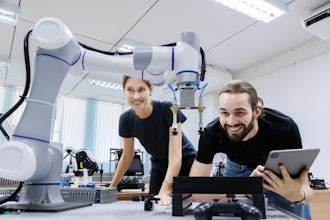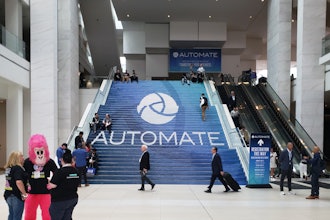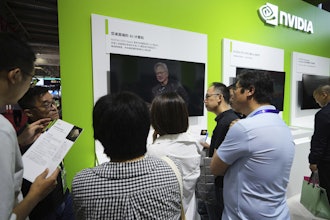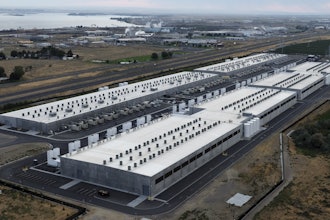
Researchers at the University of Virginia have made a significant advancement in manufacturing technology by developing an AI-driven system that could transform how factories operate. Using Multi-Agent Reinforcement Learning (MARL), the team has created a more efficient way to optimize manufacturing systems, improving both speed and quality while reducing waste.
Their innovative approach, published in the Journal of Manufacturing Systems, integrates AI agents that work together to optimize production processes. By coordinating multiple agents to manage tasks in real time, the system adjusts automatically, learning and improving performance over time. This breakthrough could lead to faster production, reduced downtime and better-quality products across industries, from automotive to electronics.
Lead researcher and professor of mechanical and aerospace engineering Qing “Cindy” Chang explains, "We are addressing the complexity of modern manufacturing. Instead of optimizing individual processes in isolation, our system looks at the big picture — coordinating everything at once. The result is smarter, faster and more adaptable manufacturing.”
The team’s algorithms, Credit-Assigned Multi-Agent Actor-Attention-Critic (C-MAAC) and Physics-Guided Multi-Agent Actor-Attention-Critic (P-MAAC), were key in making this advancement. These algorithms allow the system to account for both the physical constraints of machinery and unpredictable production disruptions. Their work has shown remarkable improvements in productivity and system robustness.
Co-researcher and mechanical and aerospace engineering Ph.D. student Chen Li highlighted the practical applications: “By integrating system- and process-level parameters, this system can optimize yields and dynamically adapt to changes, such as machine breakdowns or production adjustments, without human intervention. It’s a major leap forward in smart manufacturing.”
The research was conducted in collaboration with General Motors, a key industry partner that provided valuable insights and real-world applications for the AI system. GM's involvement helped ensure the technology addresses the practical challenges of modern manufacturing.
“Our collaboration with UVA allowed us to explore innovative solutions that could transform production efficiency across the automotive industry,” said Hua-Tzu Fan, a researcher at General Motors R&D. The partnership highlights the critical role industry leaders play in driving cutting-edge advancements in manufacturing.
The team believes this AI-driven control system could establish new benchmarks for manufacturing efficiency, particularly in complex, multi-stage production environments. The research sets the foundation for smarter, more adaptable production systems, with broad potential applications across various industries.
In addition to improving productivity, the system offers significant economic and environmental advantages. By reducing waste, minimizing downtime and lowering energy consumption, manufacturers can achieve substantial cost savings while shrinking their environmental footprint. The technology presents a powerful step forward for both industry and sustainability efforts.






















